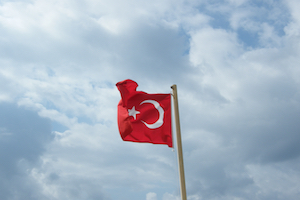Press Review: Where is Turkey headed?
On Sunday, April 16th, the citizens of Turkey voted on introducing a presidential system. This constitutional referendum marks a new pinnacle of political developments in Turkey that have left Western states uneasy. Many fear the country is slowly drifting toward autocracy. Where to is Turkey’s path leading? And what role does Islam play in these new developments? Hüseyin Çiçek, a research associate at the EZIRE, addressed these questions in various contributions for radio and television.
In a post referendum interview with Radio Liechtenstein, Çiçek subsumes that “the current developments in Turkey are all but heading toward democracy”. He points out several factors favoring said development: State-imposed management of Sunni Islam has been a central feature of the Turkish laic model since the nation’s early years. It is a feature the AKP has learned to use strategically. The ruling party, Çiçek elaborates in a commentary for the Austrian Newspaper Die Furche, has mastered combining Islamic-conservative policy with laicism. While continuing along the lines of kemalistik homogenization, which aims to enhance national unity, AKP policy is simultaneously conservative and maintains close ties to Sunni Islam. It follows the Motto “the state is laic, the citizens are not”. Initially, Erdogan and the AKP pushed an agenda of democratization, but after the outbreak of the “Arab Spring” in 2010 and the following regional upheavals, the instability of Turkish democracy has become ever more evident: In the end, the Turkish laic model that aims at homogenizing society is incompatible with pluralistic democracy. Fear of societal fragmentation and territorial dissolution, found across all political camps, manifests this discordancy. Çiçek concludes that the Turkish concept of laicism, revolving around Sunni Islam, clearly promotes autocratic containment of democratic achievements.
Çiçek identifies the influence of Turkish organizations in Europe as a further factor for the current escalation: In a guest commentary for the Neue Züricher Zeitung he traces how various Turkish diaspora-organizations were able to export Turkish domestic policy under the rule of the AKP. The Committee for Turks Residing Abroad and likeminded organizations (YTAB/YTB) unite Turkish nationalists and Islamists under one roof. Their representatives function as the political interface between Ankara and the Turkish organizations in European countries. The Union of European Turkish Democracts (UETD) acted as a political arm of the AKP in Europe. According to Çiçek, it sent most of the invitations to Turkish politicians, who wanted to bring the Turks living in Europe to vote “Yes” prior to the referendum. The Diyanet, the Turkish Presidency of Religious Affairs, meanwhile operated several hundred mosques in Germany. Originally, the organization had been used to control the prayers in European mosques and hence prevent processes of radicalization in Europe. However, today, Diyanet itself was criticized by western societies: DITIB, its spin-off in Germany, was accused of having spied on community members for the Turkish secret service and the AKP. The other Turkish diaspora organizations, led by the AKP, meanwhile, tried to convince the Turks living in the European diaspora of the groundlessness of the accusations. According to Çiçek, this example showed how easy Turkish domestic politics could currently be transported to other European countries. In comparison to former Turkish governments, the will of the current AKP government to provoke decisions by escalating political confrontation with European neighbors, was remarkable.
And what about all the Turks in Germany? In an Interview with the Nürnberger Zeitung, Çiçek states: “The situation is highly emotional”. The Turkish diaspora society was highly interested in Turkish political issues – however, this should not be interpreted as a lack of interest for German issues. There were many reasons for why the people were currently so engaged with Turkish politics: E. g. the failed military coup or especially the crises in Syria. Based on the feeling that Turkey was currently facing many challenges, many hoped for a strong leader in power.
